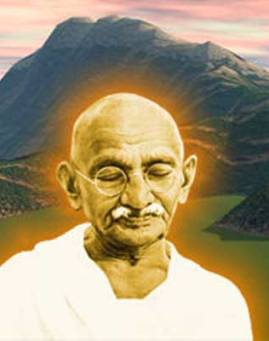
Children at Waldorf School. Niños en la Escuela Waldorf, Maryland, USA (1941).
.jpg)
.jpg)
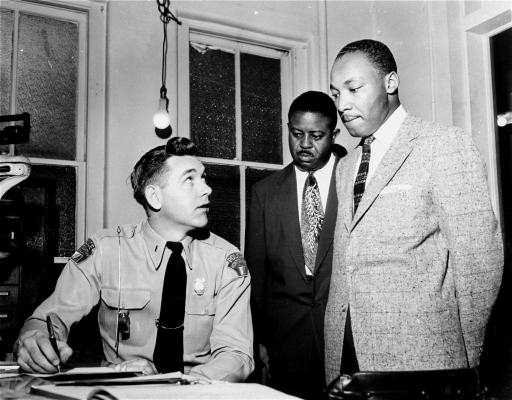

.jpg)
.jpg)
.jpg)
.jpg)
.jpg)
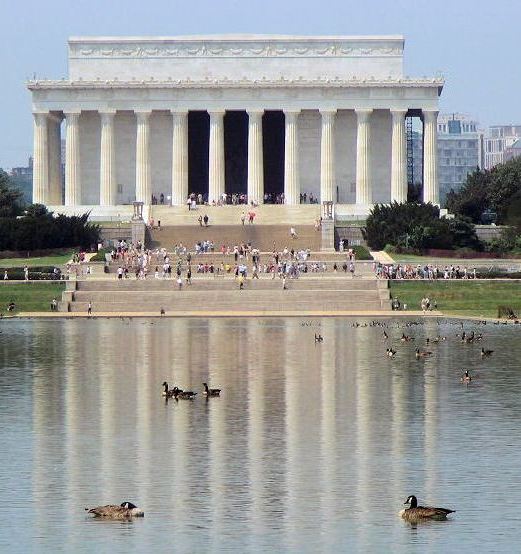
.jpg)
.jpg)
.jpg)
.jpg)
.jpg)
"I have a Dream" Lincoln Memorial, Washington D.C. (August 28th, 1963)
I AM HAPPY TO JOIN WITH YOU TODAY in what will go down in History
as the greatest demonstration for FREEDOM in the history of our nation.
Five score years ago, a great American, in whose symbolic shadow we stand today, signed the Emancipation Proclamation. This momentous decree came as a great beacon light of hope to millions of Negro slaves who had been seared in the flames of withering injustice. It came as a joyous daybreak to end the long night of their captivity.
But one hundred years later, the Negro still is not free... One hundred years
later, the life of the Negro is still sadly crippled by the manacles of segregation and the chains of discrimination. One hundred years later, the Negro lives on a lonely island of poverty in the midst of a vast ocean of material prosperity. One hundred years later, the Negro is still languished in the corners of American society and finds himself an exile in his own land. (...)
I still have a dream. It is a dream deeply rooted in the American dream. I have
a dream that one day this nation will rise up and live out the true meaning of its creed: "We hold these truths to be self-evident, that all men are created equal."
(...) From the prodigious hilltops of New Hampshire. Let freedom ring from
the mighty mountains of New York. Let freedom ring from the heightening Alleghenies of Pennsylvania. Let freedom ring from the snow-capped Rockies
of Colorado. Let freedom ring from the curvaceous slopes of California. But not only that: Let freedom ring from Stone Mountain of Georgia. Let freedom ring from Lookout Mountain of Tennessee. Let freedom ring from every hill and molehill of Mississippi. From every mountainside, LET FREEDOM RING.
And when this happens, when we allow freedom ring, when we let it ring from every village and every hamlet, from every state and every city, we will be able to speed up that day when all of God's children, black men and white men, Jews and Gentiles, Protestants and Catholics, will be able to join hands and sing in the words of the old Negro spiritual:
Free at last! Free at last! Thank God Almighty, we are free at last!




I AM HAPPY TO JOIN WITH YOU TODAY in what will go down in History as
the greatest demonstration for freedom in the history of our nation.
Five score years ago, a great American, in whose symbolic shadow we stand today, signed the Emancipation Proclamation. This momentous decree came as a great beacon light of hope to millions of Negro slaves who had been seared in the flames of withering injustice. It came as a joyous daybreak to end the long night of their captivity.
But one hundred years later, the Negro still is not free. One hundred years later, the life of the Negro is still sadly crippled by the manacles of segregation and the chains of discrimination. One hundred years later, the Negro lives on a lonely island of poverty in the midst of a vast ocean of material prosperity. One hundred years later, the Negro is still languished in the corners of American society and finds himself an exile in his own land. And so we've come here today to dramatize a shameful condition.
In a sense we've come to our nation's capital to cash a check. When the architects of our republic wrote the magnificent words of the Constitution and the Declaration of Independence, they were signing a promissory note to which every American was to fall heir. This note was a promise that all men, yes, black men as well as white men, would be guaranteed the "unalienable Rights" of "Life, Liberty and the pursuit of Happiness."
It is obvious today that America has defaulted on this promissory note, insofar as her citizens of color are concerned. Instead of honoring this sacred obligation, America has given the Negro people a bad check, a check which has come back marked "insufficient funds."
But we refuse to believe that the bank of justice is bankrupt. We refuse to believe that there are insufficient funds in the great vaults of opportunity of this nation. And so, we've come to cash this check, a check that will give us upon demand the riches of freedom and the security of justice.
We have also come to this hallowed spot to remind America of the fierce urgency of Now. This is no time to engage in the luxury of cooling off or to take the tranquilizing drug of gradualism. Now is the time to make real the promises of democracy. Now is the time to rise from the dark and desolate valley of segregation to the sunlit path of racial justice. Now is the time to lift our nation from the quicksands of racial injustice to the solid rock of brotherhood. Now is the time to make justice a reality for all of God's children.
It would be fatal for the nation to overlook the urgency of the moment. This sweltering summer of the Negro's legitimate discontent will not pass until there is an invigorating autumn of freedom and equality.
Nineteen sixty-three is not an end, but a beginning. And those who hope that the Negro needed to blow off steam and will now be content will have a rude awakening if the nation returns to business as usual. And there will be neither rest nor tranquility in America until the Negro is granted his citizenship rights. The whirlwinds of revolt will continue to shake the foundations of our nation until the bright day of justice emerges.
But there is something that I must say to my people, who stand on the warm threshold which leads into the palace of justice: In the process of gaining our rightful place, we must not be guilty of wrongful deeds. Let us not seek to satisfy our thirst for freedom by drinking from the cup of bitterness and hatred. We must forever conduct our struggle on the high plane of dignity and discipline. We must not allow our creative protest to degenerate into physical violence. Again and again, we must rise to the majestic heights of meeting physical force with soul force.
The marvelous new militancy which has engulfed the Negro community must not lead us to a distrust of all white people, for many of our white brothers, as evidenced by their presence here today, have come to realize that their destiny is tied up with our destiny. And they have come to realize that their freedom is inextricably bound to our freedom. We cannot walk alone.
And as we walk, we must make the pledge that we shall always march ahead.
We cannot turn back.
There are those who are asking the devotees of civil rights, "When will you be satisfied?" We can never be satisfied as long as the Negro is the victim of the unspeakable horrors of police brutality. We can never be satisfied as long as our bodies, heavy with the fatigue of travel, cannot gain lodging in the motels of the highways and the hotels of the cities. We cannot be satisfied as long as the negro's basic mobility is from a smaller ghetto to a larger one. We can never be satisfied as long as our children are stripped of their self-hood and robbed of their dignity by a sign stating: "For Whites Only." We cannot be satisfied as long as a Negro in Mississippi cannot vote and a Negro in New York believes he has nothing for which to vote. No, no, we are not satisfied, and we will not be satisfied until "justice rolls down like waters, and righteousness like a mighty stream."
I am not unmindful that some of you have come here out of great trials and tribulations. Some of you have come fresh from narrow jail cells. And some of you have come from areas where your quest -- quest for freedom left you battered by the storms of persecution and staggered by the winds of police brutality. You have been the veterans of creative suffering. Continue to work with the faith that unearned suffering is redemptive.
Go back to Mississippi, go back to Alabama, go back to South Carolina, go back to Georgia, go back to Louisiana, go back to the slums and ghettos of our northern cities, knowing that somehow this situation can and will be changed. Let us not wallow in the valley of despair, I say to you today, my friends.
And so even though we face the difficulties of today and tomorrow, I still have a dream. It is a dream deeply rooted in the american dream.
I HAVE A DREAM that one day this nation will rise up and live out the true meaning of its creed: "We hold these truths to be self-evident, that all men are created equal."
I have a dream that one day on the red hills of Georgia, the sons of former slaves and the sons of former slave owners will be able to sit down together at the table of brotherhood.
I have a dream that one day even the state of Mississippi, a state sweltering with the heat of injustice, sweltering with the heat of oppression, will be transformed into an oasis of freedom and justice.
I have a dream that my four little children will one day live in a nation where they will not be judged by the color of their skin but by the content of their character.
.jpg)
I have a dream today!
I have a dream that one day, down in Alabama, with its vicious racists, with its governor having his lips dripping with the words of "interposition" and "nullification" -- one day right there in Alabama little black boys and black girls will be able to join hands with little white boys and white girls as sisters and brothers.
I have a dream today!
I have a dream that one day every valley shall be exalted, and every hill and mountain shall be made low, the rough places will be made plain, and the crooked places will be made straight; "and the glory of the Lord shall be revealed and all flesh shall see it together."
This is our hope, and this is the faith that I go back to the South with. With this faith, we will be able to hew out of the mountain of despair a stone of hope. With this faith, we will be able to transform the jangling discords of our nation into a beautiful symphony of brotherhood. With this faith, we will be able to work together, to pray together, to struggle together, to go to jail together, to stand up for freedom together, knowing that we will be free one day.
And this will be the day -- this will be the day when all of God's children will be able to sing with new meaning: "My country 'tis of thee, sweet land of liberty, of thee I sing. Land where my fathers died, land of the Pilgrim's pride, from every mountainside, let freedom ring! And if America is to be a great nation, this must become true.
And so let freedom ring from the prodigious hilltops of New Hampshire.
Let freedom ring from the mighty mountains of New York.
Let freedom ring from the heightening Alleghenies of Pennsylvania.
Let freedom ring from the snow-capped Rockies of Colorado.
Let freedom ring from the curvaceous slopes of California.
But not only that: Let freedom ring from Stone Mountain of Georgia.
Let freedom ring from Lookout Mountain of Tennessee.
Let freedom ring from every hill and molehill of Mississippi.
From every mountainside, let freedom ring.
And when this happens, when we allow freedom ring, when we let it ring from every village and every hamlet, from every state and every city, we will be able to speed up that day when all of God's children, black men and white men, Jews and Gentiles, Protestants and Catholics, will be able to join hands and sing in the words of the old Negro spiritual:
Free at last! Free at last! Thank God Almighty, we are free at last!
Me siento feliz de reunirme con ustedes hoy, en la que será ante la Historia
la mayor manifestación por la libertad en la historia de nuestro país.
Hace cien años, un gran estadounidense, cuya simbólica sombra nos cobija hoy, firmó la Proclama de emancipación. Este trascendental decreto significó un gran rayo de luz y de esperanza para millones de esclavos negros, chamuscados en las llamas de una marchita injusticia. Llegó como un precioso amanecer al final de una larga noche de cautiverio.
Pero, cien años después, el negro aún no es libre. Cien años después, la vida del negro es aún tristemente lacerada por las esposas de la segregación y las cadenas de la discriminación. Cien años después, el negro vive en una miserable isla solitaria en medio de un inmenso océano de prosperidad material. Cien años después, el negro todavía languidece en las esquinas de la sociedad estadounidense y se encuentra desterrado en su propia tierra. Por eso, hoy hemos venido aquí a denunciar una situación vergonzosa.
En cierto sentido, hemos venido a la capital de nuestro país, a cobrar un cheque. Cuando los arquitectos de nuestra república escribieron las magníficas palabras de la Constitución y de la Declaración de Independencia, firmaron un pagaré del que todo estadounidense habría de ser heredero. Este documento era la promesa de que a todos los hombres, les serían garantizados los inalienables derechos a la vida, la libertad y la búsqueda de la felicidad.
Es obvio hoy en día, que Estados Unidos ha incumplido ese pagaré en lo
que concierne a sus ciudadanos negros. En lugar de honrar esta sagrada obligación, Estados Unidos ha dado a los negros un cheque sin fondos;
un cheque que ha sido devuelto con el sello de "fondos insuficientes".
Pero rehusamos creer que el banco de la Justicia haya quebrado. Rehusamos creer que no haya suficientes fondos en las grandes bóvedas de la oportunidad de este país. Por eso hemos venido a cobrar este cheque; el cheque que nos colmará de las riquezas de la libertad y de la seguridad de justicia.
También hemos venido a este lugar sagrado, para recordar a Estados Unidos
de América la urgencia impetuosa del ahora. Este no es el momento de tener
el lujo de enfriarse o de tomar tranquilizantes de gradualismo. Ahora es el momento de hacer realidad las promesas de democracia. Ahora es el momento de salir del oscuro y desolado valle de la segregación hacia el camino soleado de la justicia racial. Ahora es el momento de hacer de la justicia una realidad para todos los hijos de Dios.
Ahora es el momento de sacar a nuestro país de las arenas movedizas de la injusticia racial hacia la roca sólida de la hermandad.
Sería fatal para la nación pasar por alto la urgencia del momento y no darle la importancia a la decisión de los negros. Este verano, ardiente por el legítimo descontento de los negros, no pasará hasta que no haya un otoño vigorizante de libertad e igualdad.
1963 no es un fin, sino el principio. Y quienes tenían la esperanza de que los negros necesitaban desahogarse y ahora ya se sentirán contentos, tendrán un rudo despertar si el país retorna a lo mismo de siempre. No habrá ni descanso ni tranquilidad en Estados Unidos hasta que a los negros se les garanticen sus derechos de ciudadanía. Los remolinos de la rebelión continuarán sacudiendo los cimientos de nuestra nación hasta que surja el esplendoroso día de la justicia.
Pero hay algo que debo decir a mi gente que aguarda en el cálido umbral que conduce al palacio de la justicia. Debemos evitar cometer actos injustos en el proceso de obtener el lugar que por derecho nos corresponde. No busquemos satisfacer nuestra sed de libertad bebiendo de la copa de la amargura y el odio. Debemos conducir para siempre nuestra lucha por el camino elevado de la dignidad y la disciplina. No debemos permitir que nuestra protesta creativa degenere en violencia física. Una y otra vez debemos elevarnos a las majestuosas alturas donde se encuentre la fuerza física con la fuerza del alma.
La maravillosa nueva militancia que ha envuelto a la comunidad negra, no debe conducirnos a la desconfianza de toda la gente blanca, porque muchos de nuestros hermanos blancos, como lo evidencia su presencia aquí hoy, han llegado a comprender que su destino está unido al nuestro y su libertad está inextricablemente ligada a la nuestra. No podemos caminar solos. Y al hablar, debemos hacer la promesa de marchar siempre hacia adelante. No podemos volver atrás.
Hay quienes preguntan a los partidarios de los derechos civiles, "¿Cuándo quedarán satisfechos?" Nunca podremos quedar satisfechos mientras nuestros cuerpos, fatigados de tanto viajar, no puedan alojarse en los moteles de las carreteras y en los hoteles de las ciudades. No podremos quedar satisfechos, mientras los negros sólo podamos trasladarnos de un gueto pequeño a un gueto más grande. Nunca podremos quedar satisfechos, mientras un negro de Mississippi no pueda votar y un negro de Nueva York considere que no hay por qué votar. No, no; no estamos satisfechos y no quedaremos satisfechos hasta que "la justicia ruede como el agua y la rectitud como una poderosa corriente".
.jpg)
Sé que algunos de ustedes han venido hasta aquí debido a grandes pruebas y tribulaciones. Algunos han llegado recién salidos de angostas celdas. Algunos de ustedes han llegado de sitios donde en su búsqueda de la libertad, han sido golpeados por las tormentas de la persecución y derribados por los vientos de la brutalidad policíaca. Ustedes son los veteranos del sufrimiento creativo. Continúen trabajando con la convicción de que el sufrimiento que no es merecido, es emancipador.
Regresen a Mississippi, regresen a Alabama, regresen a Georgia, regresen a Louisiana, regresen a los barrios bajos y a los guetos de nuestras ciudades del Norte, sabiendo que de alguna manera esta situación puede y será cambiada. No nos revolquemos en el valle de la desesperanza.
Hoy les digo a ustedes, amigos míos, que a pesar de las dificultades del momento, yo aún tengo un sueño. Es un sueño profundamente arraigado en el sueño americano.
Sueño que un día esta nación se levantará y vivirá el verdadero significado de su credo: "Afirmamos que estas verdades son evidentes: que todos los hombres son creados iguales."
Sueño que un día, en las rojas colinas de Georgia, los hijos de los antiguos esclavos y los hijos de los antiguos dueños de esclavos, se puedan sentar juntos a la mesa de la hermandad.
Sueño que un día, incluso el estado de Mississippi, un estado que se sofoca con el calor de la injusticia y de la opresión, se convertirá en un oasis de libertad y justicia.
Sueño que mis cuatro hijos vivirán un día en un país en el cual no serán juzgados por el color de su piel, sino por los rasgos de su personalidad.
¡Hoy tengo un sueño!
Sueño que un día, el estado de Alabama cuyo gobernador escupe frases de interposición entre las razas y anulación de los negros, se convierta en un sitio donde los niños y niñas negras, puedan unir sus manos con las de los niños y niñas blancas y caminar unidos, como hermanos y hermanas.
¡Hoy tengo un sueño!
Sueño que algún día los valles serán cumbres, y las colinas y montañas serán llanos, los sitios más escarpados serán nivelados y los torcidos serán enderezados, y la gloria de Dios será revelada, y se unirá todo el género humano.
Esta es nuestra esperanza. Esta es la fe con la cual regreso al Sur. Con esta fe podremos esculpir de la montaña de la desesperanza una piedra de esperanza. Con esta fe podremos trasformar el sonido discordante de nuestra nación, en una hermosa sinfonía de fraternidad. Con esta fe podremos trabajar juntos, rezar juntos, luchar juntos, ir a la cárcel juntos, defender la libertad juntos, sabiendo que algún día seremos libres.
Ese será el día cuando todos los hijos de Dios podrán cantar el himno con un nuevo significado, "Mi país es tuyo. Dulce tierra de libertad, a ti te canto. Tierra de libertad donde mis ancestros murieron, tierra orgullo de los peregrinos, de cada costado de la montaña, que repique la libertad." Y si Estados Unidos ha de ser grande, esto tendrá que hacerse realidad.
Por eso, ¡que repique la libertad desde la cúspide de los montes prodigiosos de New Hampshire!
¡Que repique la libertad desde las poderosas montañas de New York!
¡Que repique la libertad desde las alturas de las Alleghenies de Pennsylvania!
¡Que repique la libertad desde las Rocosas cubiertas de nieve en Colorado!
¡Que repique la libertad desde las sinuosas pendientes de California!
Pero no sólo eso: ¡Que repique la libertad desde la Montaña de Piedra de Georgia!
¡Que repique la libertad desde la Montaña Lookout de Tennessee!
¡Que repique la libertad desde cada pequeña colina y montaña de Mississippi!
"De cada costado de la montaña, que repique la libertad."
Cuando repique la libertad y la dejemos repicar en cada aldea y en cada caserío, en cada estado y en cada ciudad, podremos acelerar la llegada del día cuando todos los hijos de Dios, negros y blancos, judíos y cristianos, protestantes y católicos, puedan unir sus manos y cantar las palabrasdel viejo espiritual negro:
"¡Libres al fin! ¡Libres al fin! Gracias a Dios omnipotente, ¡somos libres al fin!"



.jpg)




.jpg)
In 1999 Coretta Scott, King's widow, along with the rest of King's family
won a wrongful death civil trial against Loyd Jowers and "other unknown
co-conspirators". Jowers told, to have received $100,000 to arrange the
assassination. The jury of six whites and six blacks found Jowers guilty
and that "governmental agencies were parties" to the assassination plot.
En 1999 Coretta Scott, viuda de Martin, junto al resto de la familia King,
ganó un juicio civil contra Loyd Jowers y conspiradores no identificados.
Jowers dijo haber recibido 100 mil dólares por organizar el asesinato. El
jurado de seis blancos y seis negros declaró a Jowers culpable y afirmó:
"las agencias gubernamentales fueron partícipes" en la trama homicida.
One of the most powerful reasons for his killers to shut his mouth up was:
Una de las razones más poderosas de sus asesinos para silenciarle fue:
Martin Luther King's speech: Why am I Opposed to the War in Vietnam.
Excerpts of a Sermon at the Ebenezer Baptist Church on April 30, 1967.
Discurso de Martin L. King: Por qué me Opongo a la Guerra en Vietnam.
Extractos del Sermón en la Iglesia Baptista de Ebenezer. Abril 30, 1967.
"The time has come for America to hear the truth about this tragic war.
I’ve chosen to preach about the war in Vietnam today because I agree
with Dante, that the hottest places in hell... are reserved for those who,
in a period of moral crisis, maintain their neutrality. There comes a time
when silence... is betrayal."
"Ha llegado la hora de que Estados Unidos oiga la verdad acerca de esta trágica guerra. Me he decidido hoy a predicar sobre la Guerra de Vietnam,
pues estoy de acuerdo con Dante, en que los peores lugares del infierno
se reservan para aquellos que, en un periodo de crisis moral, mantienen
su neutralidad. Llega un momento en que callarse... es traicionar."
.jpg)
Testimony: Coretta Scott King, Ralph Abernathy and Andrew Young.
"There is nothing new about poverty. What is new is that we now have
the tecniques and the resources to get rid of poverty. The real question
is, whether we have the will." (Washington Cathedral, March 31, 1968)
La pobreza no tiene nada nuevo. Lo nuevo es que ahora disponemos de
las técnicas y los recursos para acabar con ella. La verdadera cuestión,
es si tenemos la voluntad. (Catedral de Washington, 31 de Marzo 1968)
Martin Luther King Jr's last speech. (He was assassinated the next day.)
Última alocución de Martin Luther King. (Fue asesinado al día siguiente.)
I've been to the mountain top. (Memphis, Tennessee; April 3, 1968)
"We've got some difficult days ahead. But it really don' t matter with me now. Because I've been to the mountain top. I don´t mind. Like anybody I would like to live a long life. Longevity has its place. But I'm not concerned about that now. I just wanna do God's will. And He's allowed me to go up to the mountain. And I've looked over. And I've seen the promised land. I may not get there with you. But I want you to know tonight, that we, as a people, will get to the promised land. And I'm happy, tonight. I'm not worried about anything. I'm not fearing
any man. Mine eyes have seen the glory of the coming of the Lord."
Tenemos días difíciles por delante. Pero eso realmente no tiene importancia para mí. Porque he subido a lo alto de la montaña. Así que no me preocupa. Como cualquiera me gustaría vivir una larga vida. La longevidad es lo natural. Pero mi interés no es ese ahora. Yo sólo quiero servir a la voluntad de Dios.
Él me ha permitido subir a la montaña. He visto la panorámica. He divisado
la tierra prometida. Puede que no la alcance con vosotros. Pero quiero que sepáis esta noche que juntos como pueblo llegaremos a la tierra prometida.
Y estoy feliz, esta noche. No estoy preocupado por nada. No siento miedo
a ningún hombre. Mis ojos han visto la gloriosa llegada del Señor.
.
Jimmy Carter praises Coretta & Martin Luther King's legacy in her funeral,
being critical with FBI & administration in front of a war-making hypocrite.
Jimmy Carter elogia el legado del matrimonio King en el funeral de Coretta
y critica al FBI y la administración frente a un hipócrita hacedor de guerra.
"WE KNOW now there were no weapons of mass destruction over there...[Standing ovation] But Coretta knew and we know that there are weapons
of misdirection right down here. Millions without health insurance. Poverty arounds. For war, billions more, but no more for the poor..." (Reverend Dr.
Joseph Lowery at the Coretta Scott King funeral in front of 4 presidents.)
"Sabemos ahora que no existían armas de destrucción masiva allá fuera.
[Ovación en pie] Pero Coretta sabía y todos sabemos que las armas más equivocadas existen aquí mismo. Multitud sin Seguridad Social. Pobreza alrededor. Para guerra, más billones; pero para los pobres, no hay dinero." (Reverendo Joseph Lowery, en el funeral por Coretta Scott King, delante
de 4 presidentes: Jimmy Carter, Bill Clinton y George Bush, padre e hijo.)
Funny moments of high Comedy. Divertidos momentos de alta Comedia.
Bill Clinton falling asleep during a MLK's speech. We're all human beings.
Clinton dormita en un discurso del hijo de King. Todos somos humanos...

Bill Clinton con Rosa Parks, histórica líder del Movimiento por los Derechos Civiles.
.jpg)
.jpg)
.jpg)
+26-10-2005.jpg)
.jpg)
Virtual Visit to Martin Luther King's Memorial Project in Washington D.C.
"There's no path to peace. Peace is the Path."
"No hay rutas a la paz. La Paz es el Camino."
- Mâhatma Gandhi -

"Returning violence for violence multiplies violence, adding deeper darkness to a night already devoid of stars. Darkness cannot drive out darkness; only light can do that. Hate cannot drive out hate. Only love can do that."
"Responder a la violencia con violencia, multiplica la violencia, añadiendo una oscuridad más profunda a una noche ya de por sí carente de luces. La tiniebla no ayuda a salir de la tiniebla; sólo la luz puede hacer eso. El odio no ayuda a salir del odio. Sólo el amor puede hacer eso."
- Dr. Martin Luther King Jr. -
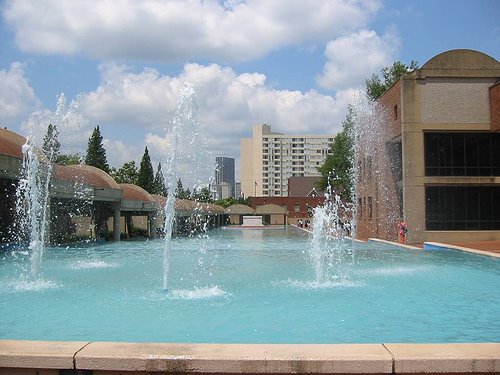
Barack Obama, one year before becoming President of the United States.
Speech at Ebenezer Baptist Church in Atlanta, Georgia (January 20, 2008)
Barack Obama, un año antes de convertirse en presidente estadounidense.
Discurso en la parroquia de Martin Luther King en Atlanta (Enero 20, 2008)


.jpg)
.jpg)
.jpg)






.jpg)
.jpg)






.jpg)
.jpg)
.jpg)
.jpg)
.jpg)
.jpg)
.jpg)
.jpg)
.jpg)
.jpg)
.jpg)
.jpg)

.jpg)
.jpg)
.jpg)
.jpg)
.jpg)





.jpg)
.jpg)


.jpg)
.jpg)
.jpg)



.jpg)
.jpg)
.jpg)
.jpg)

.jpg)
.jpg)
.jpg)


.jpg)

.jpg)
.jpg)






.jpg)






.jpg)


.jpg)

.jpg)
.jpg)


.jpg)
.jpg)
.jpg)
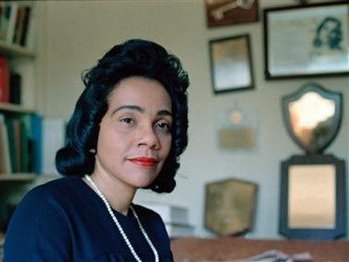
.jpg)
.jpg)
.jpg)
.jpg)
.jpg)
.jpg)
.jpg)

.jpg)

.jpg)
.jpg)
.jpg)
.jpg)
.jpg)
.jpg)
.jpg)
.jpg)



.jpg)
.jpg)
